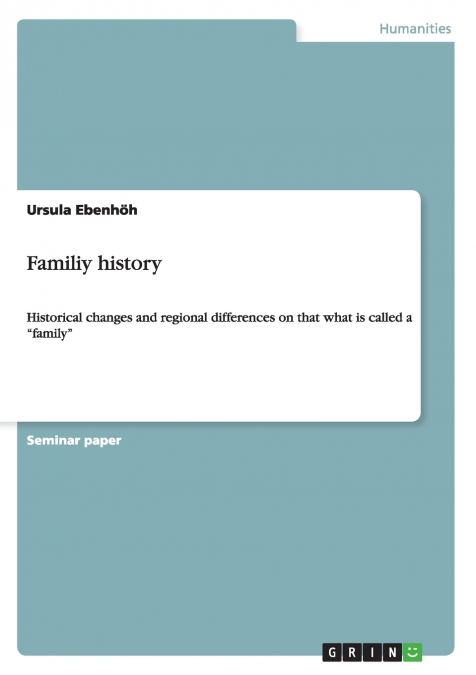
Ursula Ebenhöh
Seminar paper from the year 2004 in the subject Sociology - Gender Studies, grade: 2,0, University of Bamberg, course: Family in the life course, language: English, abstract: This paper is written for the seminar 'Family Sociology'. The theme of 'Family History' I chose, covers the main topics of marriage patterns and a comparison of family and childhood issues of the past, to those of the present. In this work I will point out the historical changes and regional differences on that what is called a 'family':First up I will shortly illustrate the development of the European pattern from Greco-Roman times until now, and I will introduce the main marriage patterns which are spread worldwide, namely the European pattern, the Eastern European pattern and the Non-European pattern. Then I will show how the meaning of family has changed. Not only is the structure another one compared to former times, but also has something new been created: a period called 'childhood' which is different from the rest of the life course, regarding children no longer as smaller adults, but as something special.The developments on family history go hand in hand to changes of society like the industrialization or the creation of a welfare state.Since normative standards declined marriage is just one possibility to live together, still the most common, but steadily loosing importance. Meanwhile divorce rates have been increasing since the end of the nineteenth century and contraceptive measures have been introduced.So obviously this, what is called a family is more flexible than ever, creating the so called 'patchwork-family', which may consist of one single parent and children, two spouses with children they have from a former relationship with another person, or even a homosexual couple with children. Nowadays there is a new tolerance for what is called a 'family'. Usually talking about 'family' today means referring to the 'nuclear family'.According to Berger (2002, 6) the nuclear